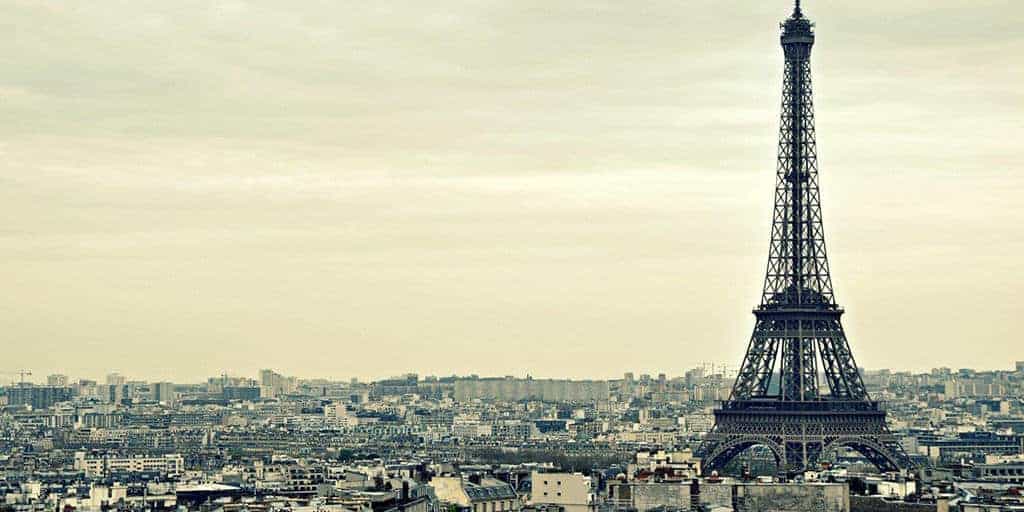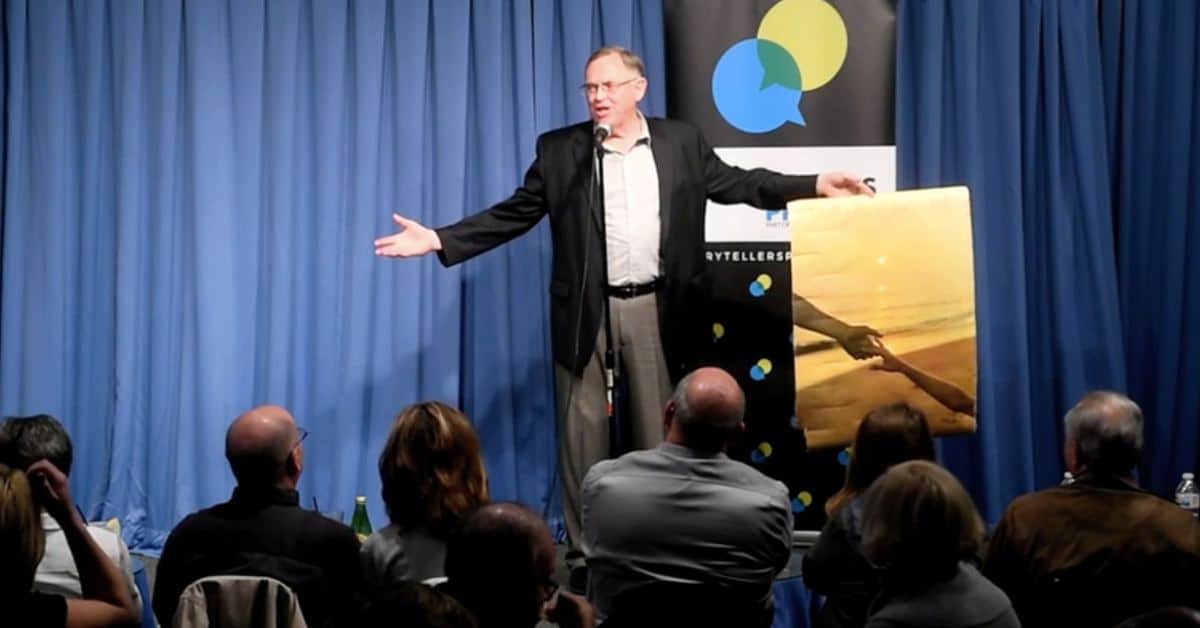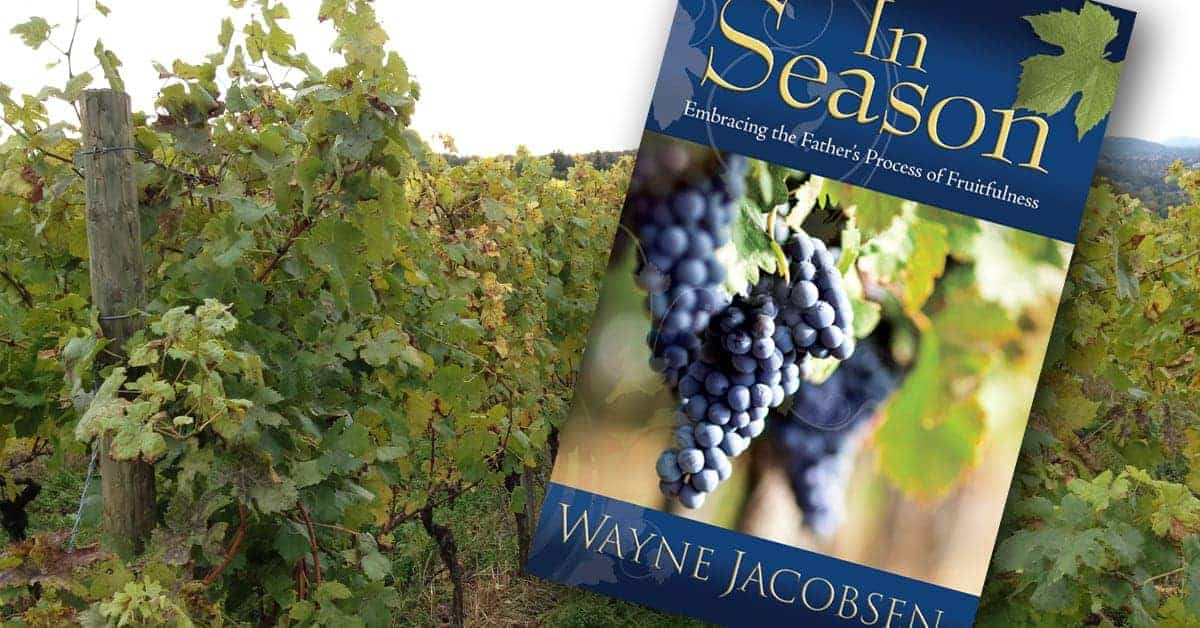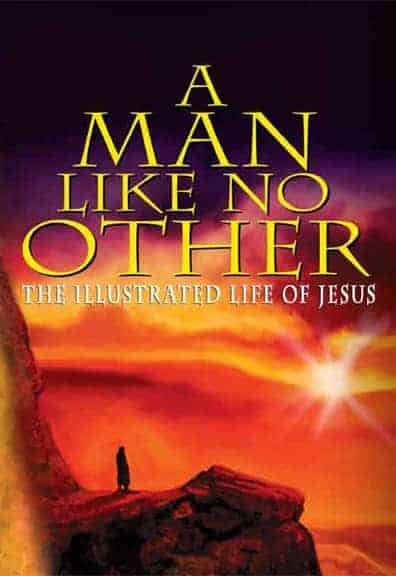The pictures in this week’s Time magazine of the aftermath of the tsunami disasters in the Indian Ocean are almost incomprehensible. Over 150, 000 people are believed to have died in tsunami’s rage itself, with the prospect of more deaths to come as unsanitary conditions and disease wreck further havoc on the survivors. I heard one man tell of running from the rising tide with a five-week old daughter under his arm, and couldn’t help but think of my own granddaughter at that age. So many people have died, so many families torn asunder.
The depth of human sorrow and suffering are beyond our imagining. Many have taken to calling it a crisis of Biblical proportions, and it is! Some news reports have said that one-third of the population vanished in the waves in some areas of Sumatra. That same one-third figure is used throughout Revelation 8 as the seven trumpets are blown and disasters follow. I don’t think this is that fulfillment, but it is interesting to note all the same. With a world now ravaged by religious war, and natural disasters, who can say what the days ahead might bring to our generation?
In considering such things, however, I am always a bit troubled by those who call these things God’s judgment, as if he is the destructive influence in creation. There are two things I know. One, God is the redemptive influence in Creation not the destructive one and, two, judgment in Scripture is never something his people dread. The chaos of creation is the fruit of our own sin—a world out of synch with its Creator. Judgment in its truest sense is not God wiping out people in senseless violence but God setting things right. In the Psalms it is why the trees are clapping and the hills are dancing. “God is coming to judge,” is not the cry of terror, but the song of his people. Let the kingdom come! Let the kingdoms of this world become the kingdoms of our God and of his Christ! Those are not days to fear, but to celebrate.
So how do we look at these days? Let us not find relief in blaming those affected by the disaster as some how deserving of it. I heard one fundamentalist Muslim cleric note that these happened during the Christmas holidays as Allah’s wrath against Christianity and the moral depravity of western cultures and against Muslims that have not done enough to rid the world of this influence. No, he doesn’t speak for all Muslims, and yes he looked as ridiculous as Jerry Falwell did after September 11, decrying that day of devastation as God’s judgment on America because of homosexuality and abortion that has been legalized in America. Our Father just isn’t like that. Jesus warned us (Luke 13:4) that we shouldn’t think the victims of tragedy any more guilty than those who escape it.
What do we do in tragedy? We weep with those who weep! I cannot imagine how God contains in his great love all the terror of that fateful day and all the sorrow that follows it. I don’t know how he holds in himself the desperate cries of need that rise out of the aftermath today. But he does. Our prayers can join with him as he reaches to people devastated by this disaster. We can also put feet to our prayers by doing whatever we can to help further God’s redemptive purpose in sending money or resources to provide help to those in need—feeding the hungry, providing housing, caring for orphaned children. By doing it for them, we do it for him.
And somehow our hearts can hunger a bit more for the day when this whole world reflects the glory of its Creator rather than the chaos of our sin. We can feel a bit less at home here and the frustration of creation that has been subjected to the futility of sin. And we can let Jesus have a bit more of our hearts today so that we can be even more the sons and daughters of God revealed in the world so that others might know who he is.








It is indeed a sad thing that some in Christendom have declared these types of events are Father’s Judgment. The fact is Jesus took all of Father’s judgment at the Cross and the hostilities are done with because of Jesus and His finished work. But yet we as believers deny this everyday by our actions and by these types of statements that God is judging (fill in the blank)……………..
If He is still punishing then why tell me did Jesus go to the Cross?
The Prophet Isaiah said that God will see the travail of His soul and shall be SATISFIED!
Peace
It is indeed a sad thing that some in Christendom have declared these types of events are Father’s Judgment. The fact is Jesus took all of Father’s judgment at the Cross and the hostilities are done with because of Jesus and His finished work. But yet we as believers deny this everyday by our actions and by these types of statements that God is judging (fill in the blank)……………..
If He is still punishing then why tell me did Jesus go to the Cross?
The Prophet Isaiah said that God will see the travail of His soul and shall be SATISFIED!
Peace
Strange how we Christians can be on the wrong side of the argument so many times. I am perplexed how people can call this the judgment of God. Each one of these deaths could have been prevented with common sense. It’s just plains stupid to build your house ontop of an earthquake fault line, such as they are doing in Hayward in the Bay Area. When the fault line gives way, then will it be God again? God created the earth with these natural “disasters” in order to sustain human life for the rest of the planet.
Take for instance Pat Robertson. He regularly claims that fires and hurricanes in gay populated area’s is the act of God’s judgment on those communities. But I bet that when a hurricane decimates their headquarters in VA, then it will be the devil. It’s doctrines of convenience.
I was watching a program on AIDS research the other day – another issue that Christians have been on the wrong side of. The research on this disease has led to many discovers that benefits other diseases such as cancer, but we would much rather stand in “judgment” because of our doctrine, than to see the good that God is showing forth by this disease being around.
Which makes me wonder – why is it that we are so addicted to judge?
Strange how we Christians can be on the wrong side of the argument so many times. I am perplexed how people can call this the judgment of God. Each one of these deaths could have been prevented with common sense. It’s just plains stupid to build your house ontop of an earthquake fault line, such as they are doing in Hayward in the Bay Area. When the fault line gives way, then will it be God again? God created the earth with these natural “disasters” in order to sustain human life for the rest of the planet.
Take for instance Pat Robertson. He regularly claims that fires and hurricanes in gay populated area’s is the act of God’s judgment on those communities. But I bet that when a hurricane decimates their headquarters in VA, then it will be the devil. It’s doctrines of convenience.
I was watching a program on AIDS research the other day – another issue that Christians have been on the wrong side of. The research on this disease has led to many discovers that benefits other diseases such as cancer, but we would much rather stand in “judgment” because of our doctrine, than to see the good that God is showing forth by this disease being around.
Which makes me wonder – why is it that we are so addicted to judge?
As a mother, my heart breaks when I see the images
of children left without parents. And the parents
separted from their children. Literally swept away
from them. If I hurt so much, how much more does
the Father hurt when these things happen? I can’t
begin to understand the why’s of it all. Is creation
groaning? We judge because it assuages our own fears.
As a mother, my heart breaks when I see the images
of children left without parents. And the parents
separted from their children. Literally swept away
from them. If I hurt so much, how much more does
the Father hurt when these things happen? I can’t
begin to understand the why’s of it all. Is creation
groaning? We judge because it assuages our own fears.
I have also been disturbed by the judgement interpretation put forward by some well-known Christians. I think you are right, Eddie, that it is a doctrine of convenience for people. When we are so convinced that the gospel is more about what we do than about what Jesus already did, it seems that we get tied up in judgements rather than freed to love.
I have also been disturbed by the judgement interpretation put forward by some well-known Christians. I think you are right, Eddie, that it is a doctrine of convenience for people. When we are so convinced that the gospel is more about what we do than about what Jesus already did, it seems that we get tied up in judgements rather than freed to love.
I heard an expert on the TV say that the climate on our planet is no longer entirely "natural" in the sense that the activities of mankind can now be seen to have a discernable impact on global weather patterns. By extending that line of reasoning we could say that the whole earth is at the mercy of our progress.
We don’t know how delicately poised the earth’s plates are, but if we did, we might be more concerned about upsetting the balance. And we might , in the developed world, admit some responsibility for "natural" disasters. Or does our role as stewards of this vineyard not encompass sustainability?
It always bothers me when natural disasters are referred to as "acts of God". And yes, I agree with you all, it is especially disturbing when this claim is coming from supposed believers. Believers of what? They would be well advised to just stick to reminding the world of the greatest act of God of all: The cross and the resulting redemption of the world!
I heard an expert on the TV say that the climate on our planet is no longer entirely "natural" in the sense that the activities of mankind can now be seen to have a discernable impact on global weather patterns. By extending that line of reasoning we could say that the whole earth is at the mercy of our progress.
We don’t know how delicately poised the earth’s plates are, but if we did, we might be more concerned about upsetting the balance. And we might , in the developed world, admit some responsibility for "natural" disasters. Or does our role as stewards of this vineyard not encompass sustainability?
Eddie,
I disagree with you that God created the world with natural disasters or that it is stupidity that causes people to die from them. What kind of God would create hurricaines, tornadoes, earthquakes, dust storms, plagues, etc. The cosmos He created was "very good" (perfect). What a judgment upon the character of an all-powerful and good creator, Jesus Christ!
Also, it is not stupidity that causes people to die from the list above. People die from tornadoes, hurricaines, etc. who were just in the way.
Tim
I won’t bore you with a scientific explanation of why tectonic plates move, and how that impacts life on earth, and how all these things act together to create the ‘perfect’ environment for man to dwell in. But I think you missed my larger point – we don’t life in the dark ages, and we know where most of these “natural” disaster hotspots are. Subsequently, we can decide not to build our house on it. If we do, then we should be able to accept the consequences and not blame God for it.
I do agree with you, its insult to God’s Cross and character to ascribe these disasters as an act of his judgment.
~peace and grace~
It always bothers me when natural disasters are referred to as "acts of God". And yes, I agree with you all, it is especially disturbing when this claim is coming from supposed believers. Believers of what? They would be well advised to just stick to reminding the world of the greatest act of God of all: The cross and the resulting redemption of the world!
Eddie,
I disagree with you that God created the world with natural disasters or that it is stupidity that causes people to die from them. What kind of God would create hurricaines, tornadoes, earthquakes, dust storms, plagues, etc. The cosmos He created was "very good" (perfect). What a judgment upon the character of an all-powerful and good creator, Jesus Christ!
Also, it is not stupidity that causes people to die from the list above. People die from tornadoes, hurricaines, etc. who were just in the way.
Tim
I won’t bore you with a scientific explanation of why tectonic plates move, and how that impacts life on earth, and how all these things act together to create the ‘perfect’ environment for man to dwell in. But I think you missed my larger point – we don’t life in the dark ages, and we know where most of these “natural” disaster hotspots are. Subsequently, we can decide not to build our house on it. If we do, then we should be able to accept the consequences and not blame God for it.
I do agree with you, its insult to God’s Cross and character to ascribe these disasters as an act of his judgment.
~peace and grace~
Hi Eddie. Grace to you, as well. The statement you made that I and the Scriptures argue against is, "God created the earth with these natural “disasters” in order to sustain human life for the rest of the planet." This is just not the case. Genesis 1 and 2 describe a "very good" (perfect) creation, into which death did not enter until man disobeyed. So, one cannot blame God for any sort of "natural disasters". In addition, I do not think it is kind or gracious to say that "Each one of these deaths could have been prevented with common sense." Do you really think that each person who died in the recent tsunami or any other natural disaster died out of stupidity? If anyone is guilty of stupidity it was Adam and Eve. But I guess we have all inherited their "stupdity" too.
Again, grace to you.
Tim
Hi Eddie. Grace to you, as well. The statement you made that I and the Scriptures argue against is, "God created the earth with these natural “disasters” in order to sustain human life for the rest of the planet." This is just not the case. Genesis 1 and 2 describe a "very good" (perfect) creation, into which death did not enter until man disobeyed. So, one cannot blame God for any sort of "natural disasters". In addition, I do not think it is kind or gracious to say that "Each one of these deaths could have been prevented with common sense." Do you really think that each person who died in the recent tsunami or any other natural disaster died out of stupidity? If anyone is guilty of stupidity it was Adam and Eve. But I guess we have all inherited their "stupdity" too.
Again, grace to you.
Tim
Tim
Since you are not "hearing" me, please accept my apology if my choice of words offended you.
~grace and peace~
Tim
Since you are not "hearing" me, please accept my apology if my choice of words offended you.
~grace and peace~
A parable
A rich man had two daughters, called Julie and Jenny. Julie was the oldest and Jenny was adopted. When they grew up to be adults, they wanted their independence, so their father bought them a house to live in. They enjoyed the independence for a while, but they still felt constrained, because their father owned the house. He was a kind man, so he arranged for his solicitor to transfer the legal title for the house into the name of his daughters.
He said to them, "I want to you to be totally free from my control, so I have transferred the legal ownership of the house to you. It is now your house. You are free to do what you like in it. However, you need to understand that you are also responsible for it. Enjoy your freedom, but guard it carefully." He knew there was a risk, but he had taught them about life and money, so he trusted them.
The two daughters really enjoyed their freedom, but after some time Julie got bored and decided to leave home and travel overseas. Jenny was left with a house to herself.
One day Jenny heard Mr Banker advertising on the radio, "You will have just received the new government valuation for your property. I can show you how to use the increase in equity for your benefit." Jenny thought that this sounded pretty good, so she contacted Mr Banker. He agreed to loan her $500,000 and took out a mortgage over the property. Jenny had a great time with the money and lots of friends, but eventually the money was gone. Jenny was unable to pay her interest, so Mr Banker foreclosed on the mortgage and sold the property in a mortgagee sale.
The new owner of the property was Mr Saddun. He could have forced to leave, but he said she could continue to live in large hall cupboard. He then rented the rest of the house to three families of gang associates.
Life for Jenny was soon absolutely miserable. Her new neighbors invited all their friends around and gradually started wrecking the house. Jenny was stuck with people she hated in a house she loved that was being trashed.
When Jenny’s friends heard what had happened, they were shocked. Some said that Jenny had been stupid; but that would not be a very good ending to a story. Some said that Mr Saddun was cruel and mercenary, but everyone knew that already. He said that he was generous, because he could have thrown her out of the house.
Many people said that Jenny’s father should have done something to prevent the tragedy. But what could he do? He had given legal title over the house to his daughters, so he had no legal right to prevent the mortgage or the sale. Some might say that he made a mistake in giving the girls their freedom. Perhaps he should have retained legal ownership of the house, but then his girls would not have been totally free.
When Jenny’s father heard what had happened, he wept, because he loved his daughter. He had known the risk when he gave her the house that things could go wrong, but he had chosen to giver her freedom, so she would grow to maturity.
nterpretation at http://watcher.4t.com/Times_Seasons/tsunami.htm
A parable
A rich man had two daughters, called Julie and Jenny. Julie was the oldest and Jenny was adopted. When they grew up to be adults, they wanted their independence, so their father bought them a house to live in. They enjoyed the independence for a while, but they still felt constrained, because their father owned the house. He was a kind man, so he arranged for his solicitor to transfer the legal title for the house into the name of his daughters.
He said to them, "I want to you to be totally free from my control, so I have transferred the legal ownership of the house to you. It is now your house. You are free to do what you like in it. However, you need to understand that you are also responsible for it. Enjoy your freedom, but guard it carefully." He knew there was a risk, but he had taught them about life and money, so he trusted them.
The two daughters really enjoyed their freedom, but after some time Julie got bored and decided to leave home and travel overseas. Jenny was left with a house to herself.
One day Jenny heard Mr Banker advertising on the radio, "You will have just received the new government valuation for your property. I can show you how to use the increase in equity for your benefit." Jenny thought that this sounded pretty good, so she contacted Mr Banker. He agreed to loan her $500,000 and took out a mortgage over the property. Jenny had a great time with the money and lots of friends, but eventually the money was gone. Jenny was unable to pay her interest, so Mr Banker foreclosed on the mortgage and sold the property in a mortgagee sale.
The new owner of the property was Mr Saddun. He could have forced to leave, but he said she could continue to live in large hall cupboard. He then rented the rest of the house to three families of gang associates.
Life for Jenny was soon absolutely miserable. Her new neighbors invited all their friends around and gradually started wrecking the house. Jenny was stuck with people she hated in a house she loved that was being trashed.
When Jenny’s friends heard what had happened, they were shocked. Some said that Jenny had been stupid; but that would not be a very good ending to a story. Some said that Mr Saddun was cruel and mercenary, but everyone knew that already. He said that he was generous, because he could have thrown her out of the house.
Many people said that Jenny’s father should have done something to prevent the tragedy. But what could he do? He had given legal title over the house to his daughters, so he had no legal right to prevent the mortgage or the sale. Some might say that he made a mistake in giving the girls their freedom. Perhaps he should have retained legal ownership of the house, but then his girls would not have been totally free.
When Jenny’s father heard what had happened, he wept, because he loved his daughter. He had known the risk when he gave her the house that things could go wrong, but he had chosen to giver her freedom, so she would grow to maturity.
nterpretation at http://watcher.4t.com/Times_Seasons/tsunami.htm